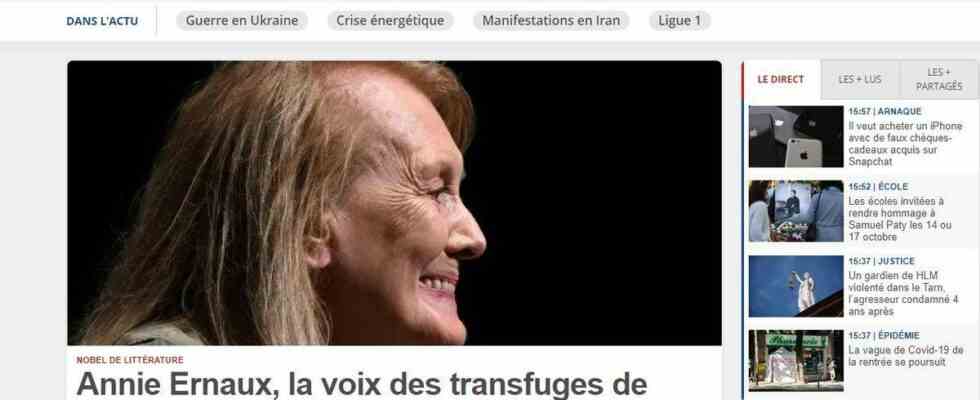Macronists, Mélenchonists, propaganda tool of the American empire or in the pay of the New World Order… 20 minuteslike most mainstream news media, we are used to being credited with endorsements or influences of all kinds.
But in recent months, we could have been accused of relaying Russian propaganda in the conflict between Vladimir Putin’s country and Ukraine.
Our site copied for Russian propaganda
Indeed, victims of our success, we have been copied, or rather… usurped. A website imitating ours has been spotted by Meta, the parent company of Facebook. Same colors, same presentation, and a very, very similar URL: 20minuts.com.
“People registered this domain name, a similar graphic charter and then they used a tool that sucks up our content, making their site almost similar to ours, explains Winoc Coppens, director of information systems at 20 minutes. With one difference, they inserted their own content, pro-Russian and anti-Ukrainian propaganda articles. »
The largest disinformation campaign since the start of the conflict
Also, in the middle of the articles of 20 minutesyou could find others who denounced supposed Ukrainian lies, violence committed by kyiv troops or corruption by the President of the European Commission, Ursula von der Leyen.
According to Meta, who relied on the work of Digital Forensic Research Lab (DFRLab), a digital research laboratory, this is the work of a Russian disinformation network who would have invested nearly 100,000 euros for the “most important and sophisticated” operation since the invasion of Ukraine by Russia in February 2022.
Several European media concerned
20 minutes is not the only site to have been affected by this campaign since other major European dailies have also been entitled to their clone like the British The Guardianthe Germans Der SpiegelUkrainians from ORBC or the Italian press agency Ansa.
According to our colleagues from France Infothese disinformation articles were even shared on social networks “by more than 2,300 fake accounts and fake pages in various languages, as well as paid advertisements”.
We can never be too careful
Other sites could soon be targeted by these methods. Indeed, in July 2026, an Internet user, spotted by moderator’s bloghad spotted the recording from nearly 1,000 domain namesB suspects by the same anonymous person, all evocative of known institutions, such as Insee, the Strasbourg Academy or Pôle emploi. Sites and email addresses that could be used for fraudulent purposes.
ENSi, the experts in the fight against computer piracy, continue to scrap with the same intensity as we fight against disinformation, in particular through our Fake Off section, we can only advise our readers to ensure that they are indeed on the website of 20 minutes and not on a clone by checking that the URL entered in the browser is indeed www.20minutes.fr, with the added bonus of the secure connection provided by our site with the small padlock icon and the “S” after the http.

